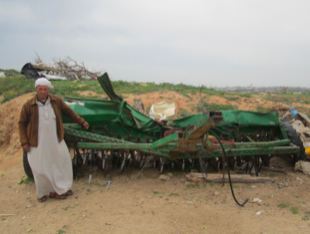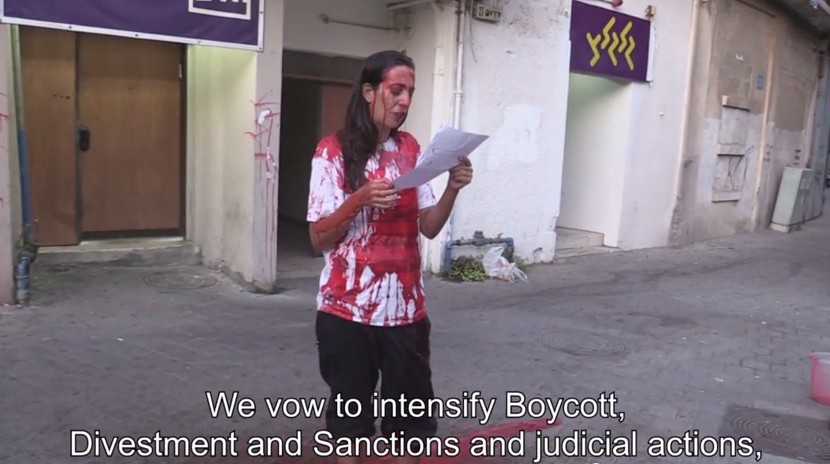Tag: Operation Protective Edge
-
Last summer’s Israeli aggression is sending Gaza back to the Middle Ages
31st March | Miguel Hernández | Gaza, Occupied Palestine Zionist colonisers destroy the tools for self-sufficiency of Palestinians in Gaza Months after the last massive Israeli aggression against the Gaza Strip, thanks to the social and independent media, everyone has read news and seen pictures of the attacks from the zionist regime against residential buildings, United Nations shelter-schools, hospitals, ambulances, mosques,…
-
Jews Against Genocide: Blood bucket challenge at Yad Vashem
29th September 2014 | Jews Against Genocide | Occupied Palestine Jews Against Genocide held memorials for the victims of Israel’s recent genocidal attack on Gaza during which the speakers poured buckets of blood like liquid over themselves at Yad Vashem holocaust museum in Jerusalem, the US embassy in Tel Aviv, The Israeli Supreme court in Jerusalem,…
-
The Israeli offensive on Gaza caused full or partial damages to 75 kindergartens and day-care centers
21st September 2013 | Democracy and Workers’ Rights Center in Palestine | Gaza, Occupied Palestine The Democracy and Workers’ Rights Center field teams have documented full or partial damages to 75 kindergartens and day-care centers caused during the 51 day Israeli offensive against the Gaza Strip this summer. DWRC’s field workers conducted field visits to all the…



